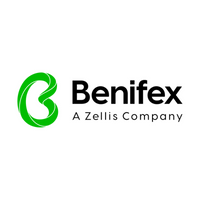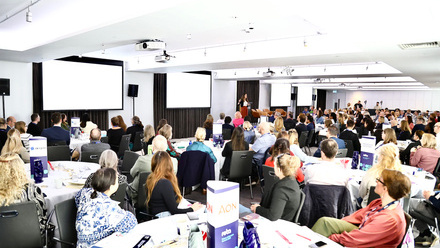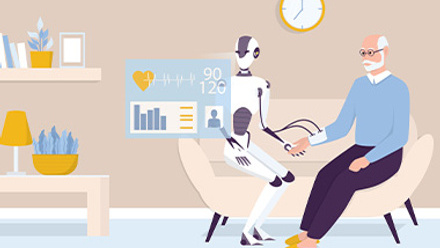How blockchain will ultimately revolutionise employee experience

The technology that makes Bitcoin viable is incredibly complex but the principle is simple; transactions are stored on a publicly distributed ledger with every entry being copied thousands of times, making fraudulent tampering with these records essentially impossible. This collection of records (blocks) is known as a blockchain.
Since its inception in 2008 blockchain technology has primarily been used as the transaction ledger for Bitcoin and other cryptocurrencies. The waves of disruption from cryptocurrencies are beginning to reach the banking industry – and we’re now watching our institutions wrest with how to engage with them.
With the focus of blockchain currently on finance, other industries would be wise to watch closely and consider the implications of blockchain technology on their own ways of working. The application of blockchain is only in its infancy but the potential is already becoming apparent for the core tasks of our HR functions to be revolutionised.
The game-changer: blockchain-as-a-service
Let’s consider one of the most visible tasks our teams perform: recruitment. From fielding candidates through to verifying their credentials, the experience we offer our future employees is often damaged by the processes we must take them through just to get them to their first day.
Job offers are held up whilst we wait for proof of qualification to come through. Access to systems is delayed until background checks are cleared. We inadvertently leave future employees in a period of abandonment because we’re not quite ready for them. We don’t design these pain points into our employee experience but we deliver them all the same.
The blockchain-as-a-service industry may have only recently taken off, but it’s done so in a massive way. Investment in the development of blockchain products is predicted to top $7.5bn by 2022, up from $242m in 2016, and in November 2017, Microsoft announced Project Bletchley – a plan to use blockchain technology to ‘build real solutions addressing real business problems’.
Introducing the project, Marley Gray of Microsoft writes: “Existing inter-company transactions carry enormous costs in process, procedure and crosschecking of records to come to settlement on what could turn out to be a trivial exercise using blockchain technology. In short, blockchain or distributed ledger technologies can provide the next wave of innovation that streamlines the way business operates, the same way the web did, giving birth to a new collaborative economy.”
Whilst it will be some time for these solutions to come to market, now is the time to start considering how different the process functions within our organisations could be if our teams had access to trustworthy, immutable records.
With the proliferation of products that are founded on blockchain technology our employee experience can be radically overhauled; a distributed ledger of professional qualifications, for example, could completely eradicate concerns around fraudulent résumés and mean that employers are able to instantly verify the credentials of a potential employee.
The rise of intelligent self-service tools is one of Bersin by Deloitte’s HR technology predictions for 2018. It’s not too much of a leap to consider how many more functions could be serviced on-demand by the employee in 2028 when enterprise technology has evolved to the point of using blockchain principles.
Look even further into the future and predictions are already being made that we will have one digital profile that we’ll use to prove our identity in everything from employment to voting. We’re now at a point where it’s not unreasonable to expect that blockchain technology will alter the way we do things as much as the internet did in decades past.
For now? Watch and wait.
You’d be forgiven for finding this an intimidating prospect; with the processing and validating function of recruitment, reward and payroll teams taken over by technology, the question arises of what happens to the people previously working in these roles.
As daunting as this potential brave new world of the future can seem, it’s also a massively exciting prospect. In moving beyond our current bread and butter, HR teams can truly come into their own as a strategic function, core to the objectives of our organisations. Yes, these teams will look radically different – but with energy taken away from repetitive tasks centred on data validation and records management, focus can be given to the transformative abilities of HR professionals.
Because for everything that technology can provide, it will always be people – our capacity for emotional intelligence, a deep understanding of company culture and knowledge of how to get the best out of our people – who will drive the improvements that impact the bottom line of our organisations.
With a watching brief now, and strategic planning in the future, we can prepare to capitalise on the potential for blockchain technology to revolutionise the employee experience.
Grace Burton is research lead (employee experience) at Benefex.
This article was provided by Benefex.
Supplied by REBA Associate Member, Benifex
The home of award-winning employee benefits, reward, recognition, & communications.







